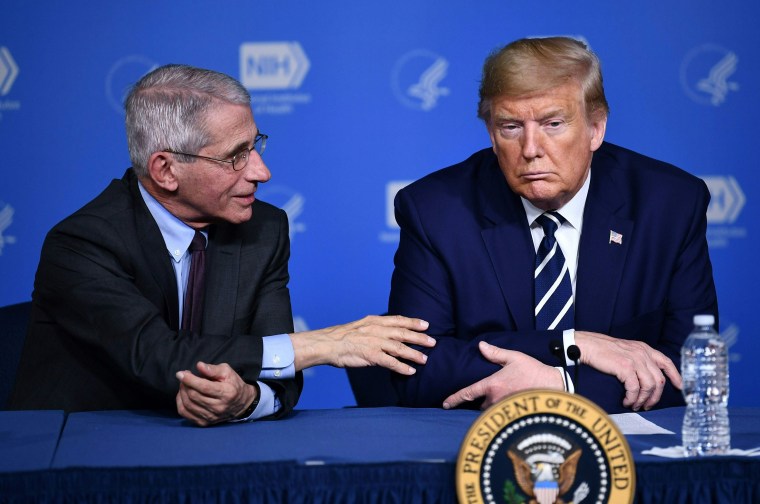During his latest Fox News interview, Donald Trump told Sean Hannity last night about his administration's decision to bring Americans with the coronavirus back to U.S. soil. To hear the president tell it, he was directly involved with the decision-making -- though he grappled with it.
"I felt we had to do it. And, in one way, I hated to do it statistically. I hated to do it from the standpoint of having people coming in. It's going to be -- is it going to look bad?"
It'd be one thing if Trump struggled with the decision because he received conflicting guidance from experts. One could also imagine circumstances in which a president wrestled with a question like this because he or she was concerned about the possible public-health consequences.
But note the Republican's own phrasing: Trump hated to bring Americans with the virus to U.S. soil because of the "statistical" impact. In context, the president seemed to suggest that he had certain talking points he wanted to use, and the numbers he wanted to cite would be adversely affected by the return of these ailing Americans.
Responsible leaders ask, "Is this a bad decision?" Trump, however, asks whether a decision is "going to look bad."
Alas, the problem isn't limited to an unscripted comment during a friendly interview. The Washington Post reported this week that the administration's coronavirus effort "has been undermined by mixed messages, contradictions and falsehoods -- many of them emanating from the president himself.... The White House is handling the rapidly expanding coronavirus as a public relations problem as much as a public health crisis."
The evidence to bolster the point is increasingly common. On Tuesday, for example, officials appeared in the White House press briefing room to provide a coronavirus update, but reporters were told that there could be no audio or video from the event. If the goal was to help provide information to an anxious public, the imposition of media rules like these was difficult to understand.
But if the goal was to manage a public-relations problem, it made perfect sense.
A day later, the New York Times published a report on Defense Secretary Mark Esper urging American military commanders overseas "not to make any decisions related to the coronavirus that might surprise the White House or run afoul of President Trump's messaging on the growing health challenge."
The article added that U.S. military commanders deployed overseas could make decisions "related to protecting their troops," but they should first "check in" with their superiors to make sure those decisions are consistent with the administration's wishes.
And it was the day after that when Trump told Fox News that he "hated" to bring Americans with the coronavirus to U.S. soil because it might "look bad" from a "statistical" perspective.
The sooner the White House stops seeing COVID-19 as a public-relations matter to be managed, and starts seeing it as a public-health emergency to be addressed, the better off we'll be.
